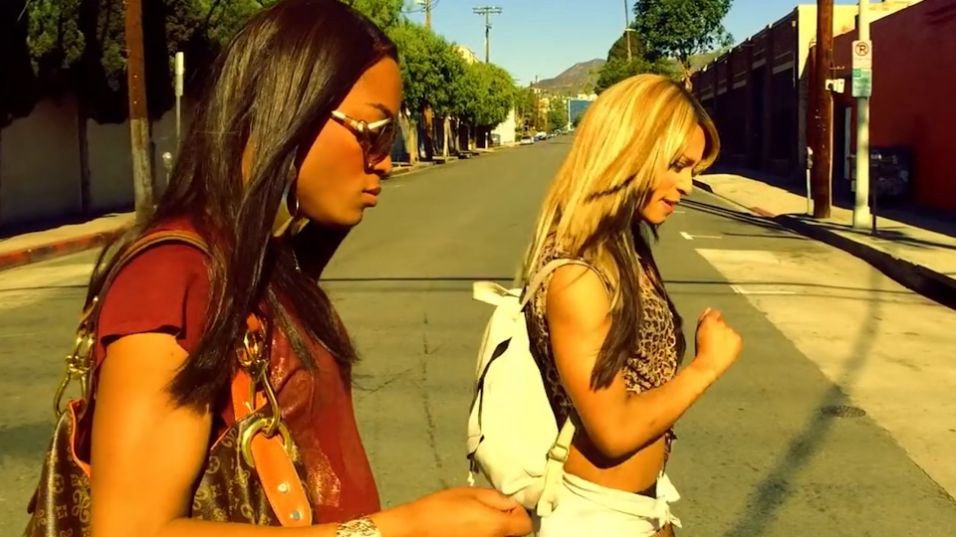Turning The Red Light Green, Or At Least Yellow
The case for legalizing/decriminalizing sex work

Two lengthy recent pieces have delved into the subject of paying for sex. First this article at the Cut by Mac McClelland asked, “Is prostitution just another job?” Then this NYT Mag feature by Emily Bazelon wanted to know, “Should prostitution be a crime?” (Apparently headlines are only permissible in question form.)
Both pieces address the issue of class divides, the fact that while some workers enter the profession by choice (a sex worker quoted in NYMag dismissively calls them “white happy hookers”), other are either trafficked or drawn in by desperation. Bazelon quotes an activist who calls the first group “empowered” and says that, unfortunately, it’s not “representative” of the field as a whole.
At the Amnesty conference, Muñoz told the crowd that she thinks decriminalization would have benefits for many people by bringing the sex trade out from underground. “I believe in the empowered sex worker,” she said. “I was one. But the empowered sex worker isn’t representative of the majority of sex workers. It’s O.K. for us to be honest about this.” She was referring to the social and economic divide in the profession. Activists in the sex-workers’ movement tend to be educated and make hundreds of dollars an hour. The words they often use to describe themselves — dominatrix, fetishist, sensual masseuse, courtesan, sugar baby, whore, witch, pervert — can be self-consciously half-wicked.
Some of their concerns can seem far removed from those of women who feel they must sell sex to survive — a mother trying to scrape together the rent, say, or a runaway teenager.
Bazelon’s piece raises interesting issues about whether any locale in the world, from New Zealand to India, Canada to France, has quite figured out decriminalization. And it focuses, for the most part, on the traditional model in which a man solicits a woman or a girl in the real world. (Bazelon seems to assume only women do sex work; if there were any male prostitutes in her story, I missed them.)
McClelland, meanwhile, focuses more on the wilds of the World Wide Web. She calls the “streetwalker” model “somewhat dated,” at least in the US, where most sex workers operate online. But she too is concerned with the class and privilege chasm:
The debate has highlighted a rift among feminists, pitting two deeply held beliefs against each other. One side argues that women should be free economic agents, capable of making choices in their own self-interest, empowered to own their sexuality and use their bodies however they choose. If Chelsea Lane wants to become a sex worker, why shouldn’t she be allowed to do it legally? Those on the other side believe that the Chelsea Lanes of the world are a tiny fraction of sex workers and that many who “choose” this life are not choosing freely or choosing at all. And, even for someone like Lane, how can that choice ever be untangled from society’s persistent cultural misogyny and inequality?
I’m pro-decriminalization, if only to give workers access to police protection and safe working conditions. Operating on the margins is unsafe. If we’re claiming as a society to care about a population that is largely young, female, and vulnerable, we have to offer protections instead of punishments. Otherwise, no matter how loudly we cluck about Morals, we contribute to the ongoing exploitation.
Personally, the idea of exchanging sex for money makes me uncomfortable. Not everything should be commercialized; as with organ donation and surrogacy, I don’t think that we should put a price on whatever there’s a demand for. Some things should be beyond the market. But our society sanctions lots of things I object to, from gambling to guns. My ethics don’t dictate you get to do. (Similarly, in my view, you might object to abortion, but that doesn’t mean you get to have it out of reach for other people who may feel differently.)
We have to be able to avoid situations like this one, described in the Times:
“I was walking back from the subway, after a job interview in Manhattan, at 6 p.m.,” says one 35-year-old woman, who has no previous arrest record for prostitution. “A car pulls up. The guy offers me a ride. I get in and he offers me $20 to have sex with him.” She said yes, she told me, because she needed to buy shampoo, deodorant and underwear, which the shelter doesn’t supply. “Then we go around the corner, and there are lights flashing in my face, and they’re putting handcuffs on me.”
Although Mogulescu disputes the assertions, the New York Police Department says the blocks around the shelter are “a known prostitution area” and that undercover police officers do not solicit women. [EDITOR’S NOTE: THIS IS THE WORST KIND OF ENTRAPMENT.] “A woman accepted an offer of $20 to have sex, and you find it odd that we’re looking at that area?” a detective in the public information office asked. “Would you have sex for $20?”
Ugh. Judge not, buddy. Who knows what you would do for $20 if you were desperate.
Support The Billfold
The Billfold continues to exist thanks to support from our readers. Help us continue to do our work by making a monthly pledge on Patreon or a one-time-only contribution through PayPal.
Comments